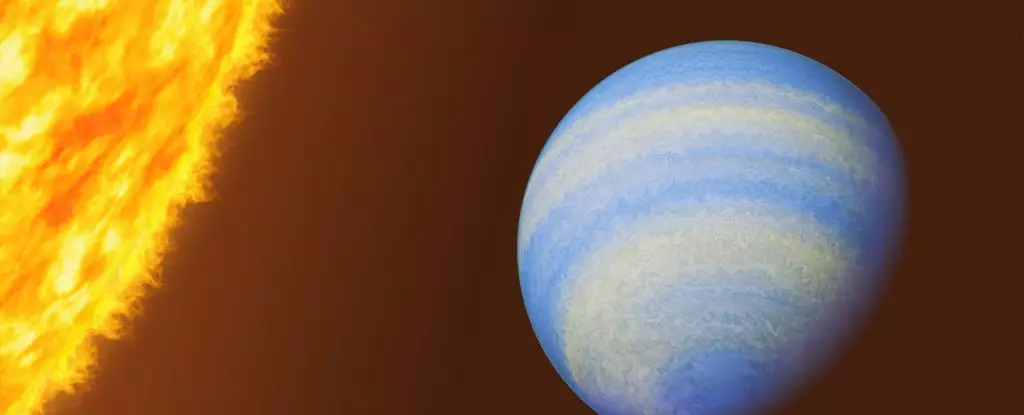The recent discovery of hydrogen sulfide on exoplanet HD-189733b has shed light on the presence of this smelly gas outside of our Solar System. Known for its characteristic rotten egg smell, hydrogen sulfide is a major molecule that has now been detected in the atmosphere of this scorching Jupiter-sized world. This discovery marks a significant milestone in our understanding of sulfur’s role on planets beyond our own.
Advancements in technology have revolutionized the way we detect and study exoplanets. By analyzing the light from host stars during planetary transits, astronomers can identify the presence of molecules in exoplanet atmospheres. Absorption and emission lines on a spectrum of light provide valuable information about the composition of these distant worlds. HD-189733b, located 64.5 light-years from Earth, has been a subject of intense study due to its proximity and unique characteristics.
In addition to hydrogen sulfide, researchers have found water, carbon dioxide, and carbon monoxide in the atmosphere of HD-189733b. These molecules serve as significant reservoirs for oxygen, carbon, and sulfur on the exoplanet. The absence of methane, a molecule previously detected but not found in subsequent measurements, aligns with expectations for a hot Jupiter like HD-189733b. The high metallicity of the exoplanet compared to its host star offers insights into its formation process.
Studying hot Jupiters like HD-189733b provides valuable information about planetary formation and evolution. The presence of hydrogen sulfide and other molecules on these extreme exoplanets can offer clues about their origins and migration patterns. By exploring the variations in composition among different exoplanets, scientists can enhance our understanding of the diverse planetary systems in the universe.
Researchers aim to expand their investigations to other hot Jupiters to determine the prevalence of sulfur in their atmospheres. The abundance of sulfur on these planets could reveal important details about their formation mechanisms and migration histories. With each new discovery, our knowledge of the complex nature of exoplanets grows, bringing us closer to unraveling the mysteries of the universe.
The detection of hydrogen sulfide on exoplanet HD-189733b represents a significant scientific achievement in exoplanetary research. By studying the chemical composition of distant worlds, astronomers are uncovering valuable insights into the diversity and complexity of planetary systems beyond our own. As we continue to explore the stinky universe, each new discovery opens up exciting possibilities for understanding the vast expanse of space.


Leave a Reply